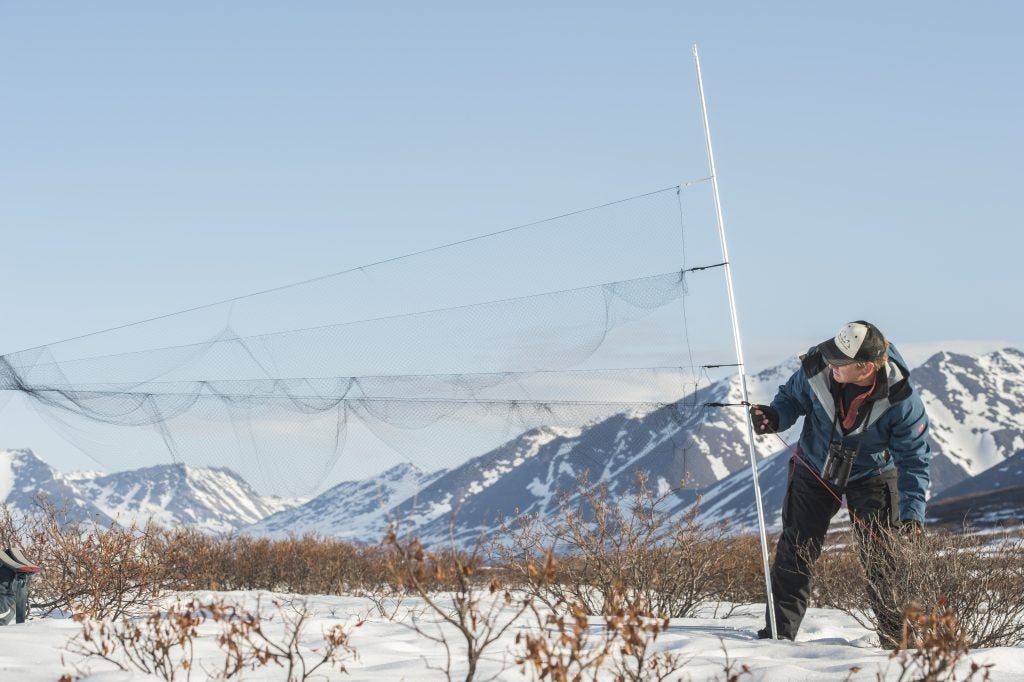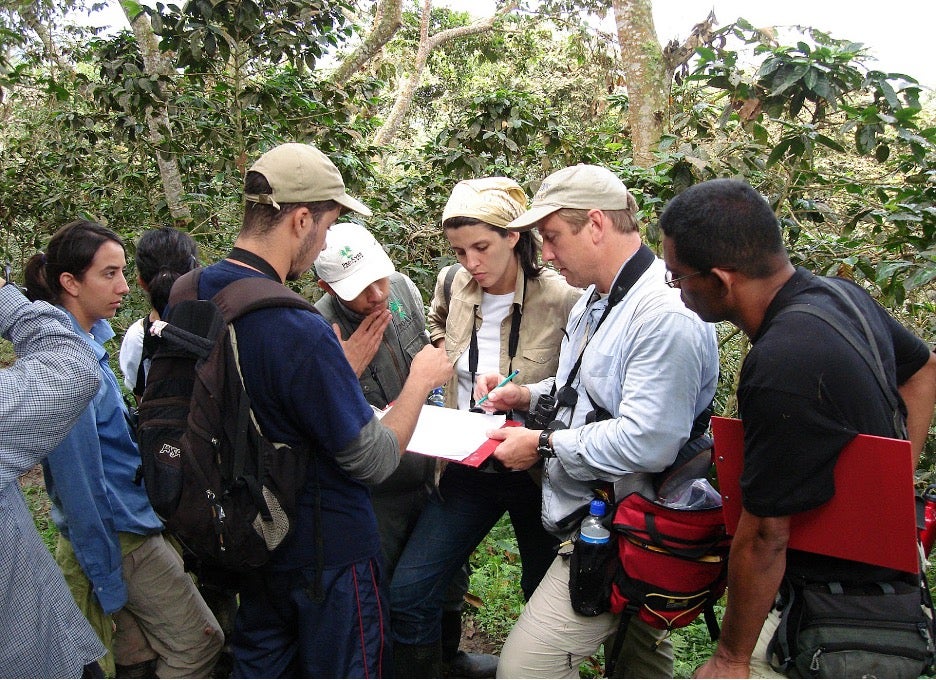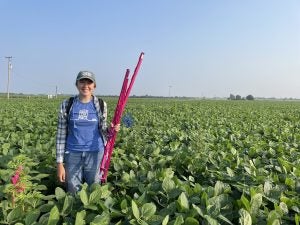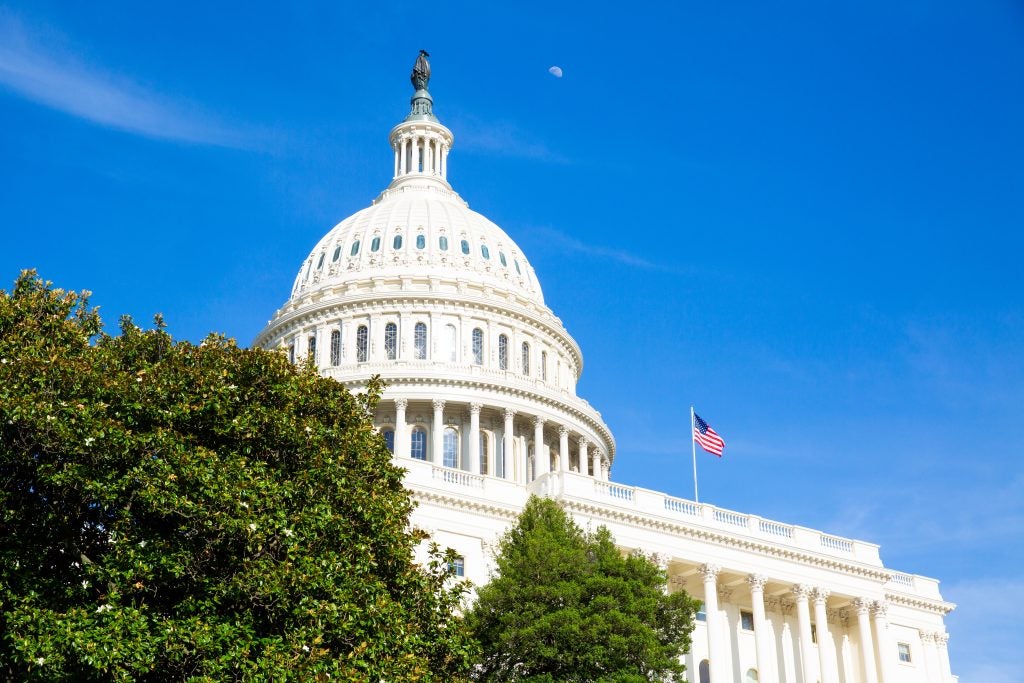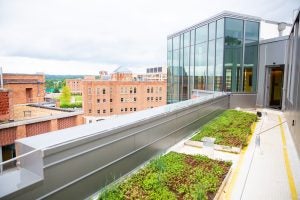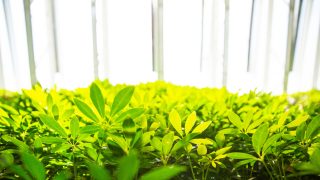The Earth Commons, Georgetown’s Institute for Environment & Sustainability, is building new educational programming for undergraduate and graduate students, expanding research opportunities for faculty members and students and developing scalable solutions for a greener campus and planet.
Guided by the university’s Jesuit values, the Earth Commons builds on Georgetown’s commitment to advance environmental sustainability and justice and to care for our common home.
“This new Institute builds on the work of our community over many years to expand and deepen our engagement with the environment,” says President John J. DeGioia. “It is with great excitement that we launch this new work, and contribute the knowledge, engagement, and expertise of our community to the urgent environmental challenges facing our world.”
A Collective Step Toward Environmental Change
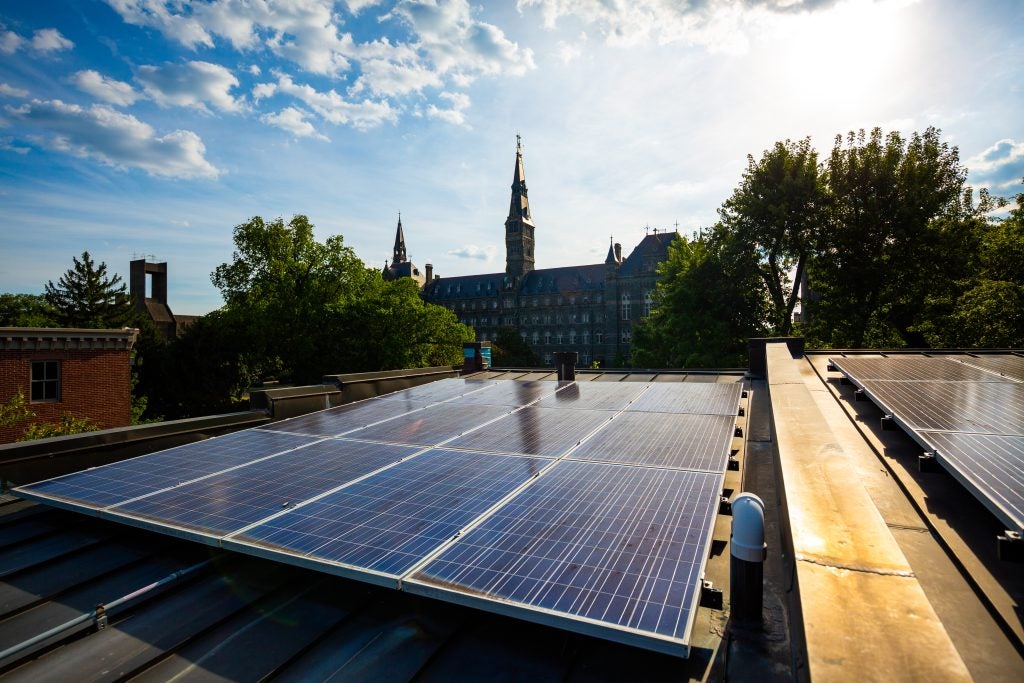
Earth Commons will be composed of multiple focal areas that will each focus on a major environmental issue, including environmental justice, climate change and energy transitions, environmental health, food and water security and biodiversity conservation. Applying an interdisciplinary approach, the institute will connect faculty, experts and students across the arts, humanities, sciences, medicine, policy and law to innovate on these environmental challenges.
“We can’t engineer ourselves out of all these problems,” says Peter Marra, founding director of the Earth Commons. “These are science problems. These are policy problems. These are moral dilemmas. These are problems that require us to think about environmental issues from multiple lenses.”
The Earth Commons will also include the focal area of sustainability, collaborating with the Office of Sustainability that will use Georgetown’s campus as a living laboratory, providing students with hands-on, experiential learning opportunities with faculty and staff to green Georgetown’s built environment and operations.
“As a part of the Earth Commons, the Office of Sustainability will create sustainable solutions, empower students to be change agents and invite all members of the Georgetown community to adopt a sustainability mindset in their day-to-day lives on-campus,” says Meghan Chapple, Georgetown’s first vice president of sustainability.
Through engagement inclusive of diverse voices, the Office of Sustainability develops solutions on campus, in administrative operations and with local communities to create a sustainable world.
How Earth Commons Found Its Home
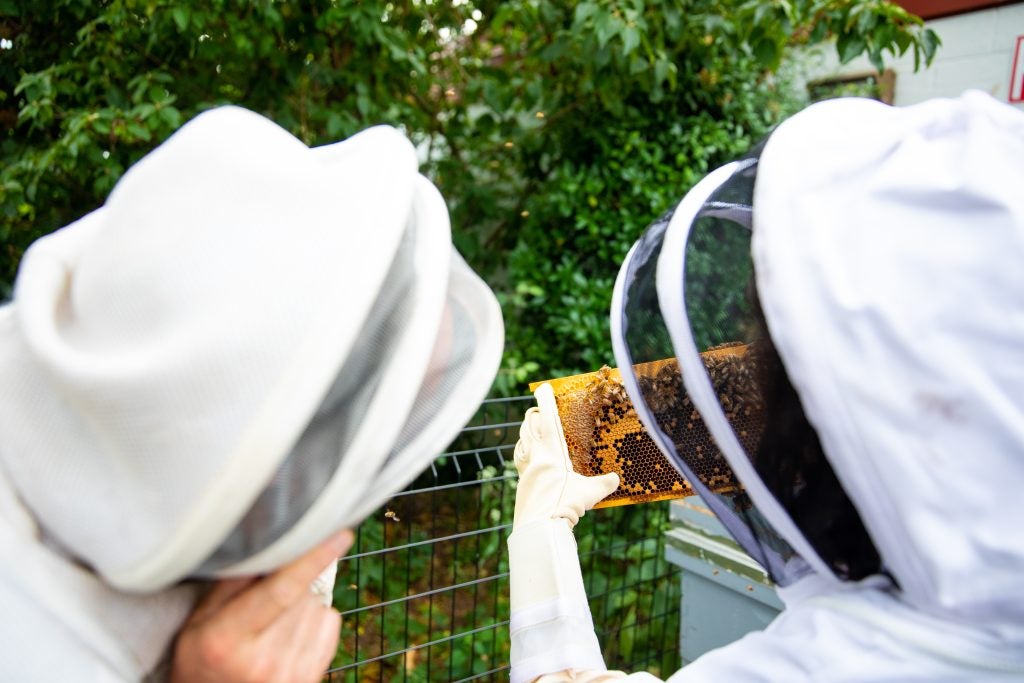
The Earth Commons grew out of decades-long work in environment and sustainability at Georgetown. The university’s Georgetown Environment Initiative (GEI), a university-wide effort established in 2012 to advance the multidisciplinary study of the environment and sustainability, provided hundreds of thousands of dollars in grants to faculty, students and staff and helped fuel environmental projects, such as the Bee Campus, a sustainability education campaign, and environmental justice projects in India.
Marra, the Laudato Si’ Professor of Biology and the Environment, left his 20-year career at the Smithsonian Institution in 2019 to helm the GEI. In response to urgent environmental challenges, Marra was committed to deepen the initiative’s and Georgetown’s impact and empower the 70-plus full-time scholars studying the environment across disciplines, from the declines of monarch butterflies and birds to climate change’s impact on women and its overall economic costs.
“It was clear there was an urgent need, as well as momentum at Georgetown,” says Marra. “The important question was how do we move the GEI to a more impactful level, amplifying and supporting existing faculty and staff and not creating new silos, and do all this in a way that allows us to build things fast, because we are on the clock.”
With the COVID-19 pandemic also exposing socio-economic disparities caused by environmental injustice, and, coupled with long-term harm to the environment, “the stakes have never been higher,” Marra said.
President DeGioia charged a faculty advisory committee to help advise the activities of an Institute for the Environment and Sustainability. As a result, GEI has now been transformed into the Earth Commons, appointing more faculty, conducting original research and developing educational programs.

